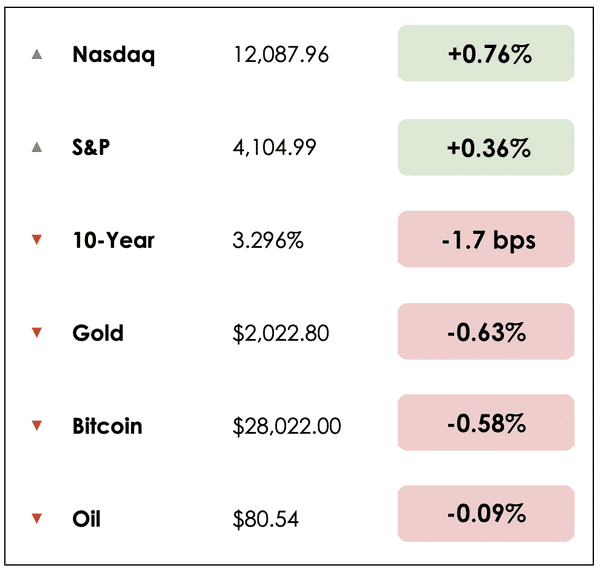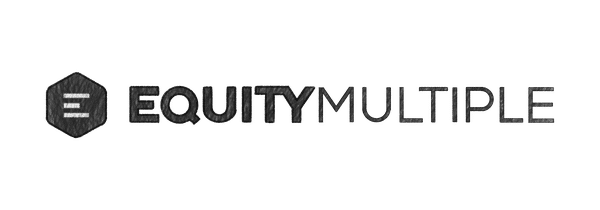Buying Time
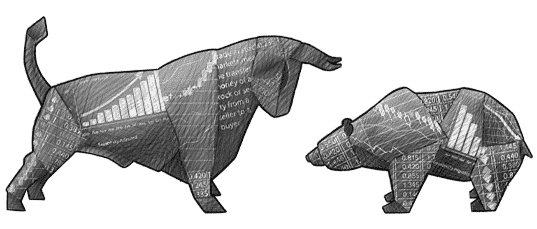
Hi, The Investor’s Podcast Network Community!
The stock market is closed for business tomorrow, and we will be, too. We’ll be back this weekend with some less news-focused topics, though.
🐻If you’re looking for a reason to be bearish, we have one: the reward for owning stocks over bonds hasn’t been this narrow in fifteen years. That’s the difference between the S&P 500’s earnings yield and the 10-year Treasury’s yield, aka the equity risk premium, which is 1.59%.
As that gap narrows, the incentive to invest in stocks weakens — the equity risk premium has averaged 3.5% since 2008 😬
Scroll down to our Chart of the Day for a visualization of this.
Here’s the market rundown:
MARKETS
*All prices as of market close at 4pm EST
Today, we’ll discuss two items in the news:
- How hedge funds profited from the banking crisis
- One company is making millions off of fees for visiting national parks
- Plus, our main story on the value of time
All this, and more, in just 5 minutes to read.
Get smarter about valuing businesses in just a few minutes each week.
Get the weekly email that makes understanding intrinsic value
easy and enjoyable, for free.
BROUGHT TO YOU BY
Real estate investing, made simple.
17% historical returns*
Minimums as low as $5k.
EquityMultiple helps investors easily diversify beyond stocks and bonds, and build wealth through streamlined CRE investing.
*Past performance doesn’t guarantee future results. Visit equitymultiple.com for full disclosures
IN THE NEWS
💸 Profiting From a Crisis (FT)
Explained:
Hedge funds made over $7 billion in profits across the U.S. and Europe by betting against bank shares during the recent crisis that rocked the sector. It’s their biggest such haul since the 2008 financial crisis.
- Short sellers borrow stock and sell it, hoping to repurchase it at a lower price. They made estimated total profits of about $1.3 billion from short positions taken against Silicon Valley Bank, according to data group Ortex. A further $848 million in gains came from bets against First Republic, whose shares fell 89% in March.
- Credit Suisse was also a source of profit, as investors made $684 million from shorting the Swiss lender, whose shares tumbled 71%.
- While bank stocks also fell sharply in early 2020 during the onset of the coronavirus pandemic, fewer funds were shorting the sector at the time, limiting gains.
Why it matters:
Amid the panic, many hedge funds responded to the turmoil by increasing their short positions.
- They expect further problems to emerge in the sector, a belief also held by JPMorgan CEO Jamie Dimon. Short interest in First Republic remains only marginally below the March high at 37.3%. Bets against Deutsche have hardly fallen, either.
The Federal Reserve’s liquidity assistance program “reduced the risk of weaker U.S. regional banks going bust owing to a lack of liquidity, but the high rate of interest being charged could lead to a catastrophic impact on net interest margins, creating a solvency risk,” said one of the hedge fund managers. “The liquidity crisis is probably over, but the solvency crisis is about to begin.”
🌳 Making Millions on Park Fees (WSJ)
Explained:
If you’ve visited one of the U.S.’s national parks since the pandemic began, chances are you’ve bought a vehicle pass on Recreation.gov. The pass is free, but you must pay a $2 fee to book a reservation. And you might think the charges help improve the park. But big chunks of the money end up with consulting firm Booz Allen Hamilton Inc.
The firm runs Recreation.gov, the website and app where people book campsites, hikes, and permits on U.S. public land. The company has a five-year contract that is up for renewal this year.
- Booz Allen invoiced the government for more than $140 million from October 2018 to November 2022, the most recent data available, according to documents obtained by The Wall Street Journal. Ten months remain for that initial five-year period.
Why it matters:
Visits to national parks surged during the pandemic as Americans vacationed outdoors. Parks added a reservation system to manage crowds and protect natural resources.
- Booz Allen leadership has described the benefits of per-transaction fee structures like the one Recreation.gov uses. “One thing I learned in B-school, for all that money, it’s a small number times a big number is a big number,” Booz Allen president and chief executive Horacio Rozanski said in 2019.
More than 23 million users had Recreation.gov accounts in the 2022 fiscal year. The site covers services from 13 different federal agencies, including the National Park Service, U.S. Forest Service, and Bureau of Land Management.
- There’s much more to the story, but national park lovers have expressed frustration that millions of dollars go to a third-party firm rather than park improvements. Park officials, meanwhile, say Booz Allen helps prevent overcrowding and keeps visitors on schedule.
MORE HEADLINES
💼 For low-income students, big-tech internships can be hard to get
🤔 Millennials might not be as badly-off as one might think
📈 The best-performing stocks of Q1 2023
HOW TO BUY TIME
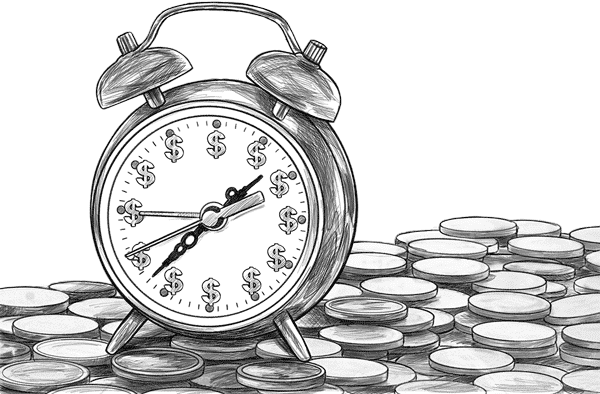
Work hard, play hard
Work hard, play hard. These words are an anthem in our culture.
Money provides us with a feeling of accomplishment. It’s a sign of success and provides social status. It opens doors and possibilities, too. Many believe it will even make them happier.
The correlation between having money and being happy arises often. You can have lots of money and no spare time, yet be considered happy and successful.
Today, the busier you are, the more productive you come across. Jumping from meeting to meeting, call to call, and ticking each task on your checklist, puts you higher in the corporate and social hierarchy.
To some, having spare time indicates incompetence and laziness. The more packed your daily schedule is, the more respect and importance you seemingly earn.
This is why we generally prioritize money and hustle over downtime, believing that once we’ve got enough wealth, we’ll be happier and carefree.
So we continue to pursue our white-collar goals, hoping that someday we’ll have more time in the future.
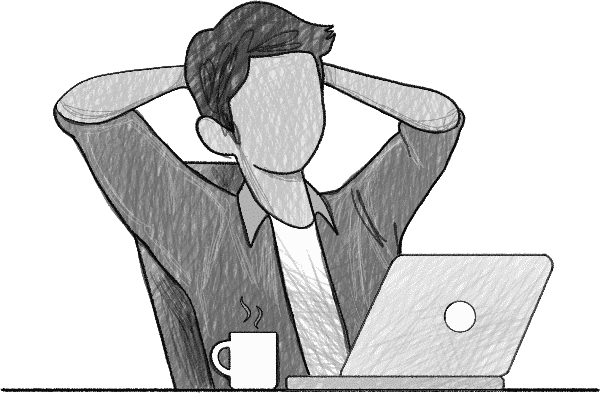
Why doing less makes us happier
Despite the rush of today, time itself is becoming a new luxury.
Going on shopping sprees and spending on goods can help you show off, gain admiration, and cheer up briefly. Yet, having time and not fixating on the rat race appears to be at the core of many people’s happiness.
The happiness researcher, Dr. Elizabeth Dunn, conducted one of the largest and most diverse studies on the topic, showing that spending money on others and on time-saving purchases is highly correlated with more happiness across all demographics.
The research highlighted two findings:
- 60% of participants who reported donating to charity in the past month appear, on average, to have higher levels of subjective well-being, a measure of happiness, compared to those who didn’t donate to charity.
- 47% of participants reported making time-saving purchases, such as hiring house cleaners or ordering food delivery, in a typical month. Those who spent money on time-saving purchases reported higher levels of happiness – equivalent to earning $14,000 more income – compared to those who didn’t

These numbers imply that those who spend on others or on time-saving services enjoy life more than those who don’t.
Time affluence — the new extravagance?
Work-life balance is more than a marketing cliche.
Usually, when we’re done with work, we want to spend our spare time relaxing. Hence, many feel stressed by time-consuming yet necessary tasks outside of work like cooking dinner, cleaning, or lawn mowing.
According to the results:
- Time-saving purchases appear beneficial even for individuals who struggle to make ends meet. Participants living paycheck to paycheck reported greater happiness levels when they made time-saving purchases, equivalent to earning $12,000 more in income, or a nearly 2% increase in happiness.
- Even for people who prioritize money over time, there’s a link between greater happiness and using money to buy time — this suggests even people who explicitly think they value money over time underestimate its true value.
Dr. Dunn explains that the research aimed to determine if the links between happiness, prosocial spending, and buying time vary depending on individual characteristics, such as age, gender, and income of Americans.
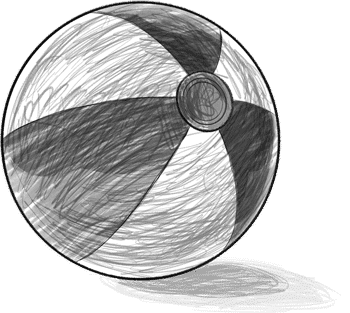
Buy experiences, not things
As Dr. Dunn says, “There’s almost no evidence that buying a home, or a newer nicer home, increases happiness.”
Contrarily, experiences pay happiness dividends for years to come in the form of fond memories. Experiences make people happier because they build stronger and deeper social relations, and they make us feel more connected to the world.
For this reason, making room for adventures, such as traveling to a new place or even just reading a good book, often provide us with more fulfillment than expenditures on material goods.
Dive deeper
If you want to learn more about how you can get more happiness for your money, read “Happy Money” by Dr. Elizabeth Dunn and Michael Norton.
SEE YOU NEXT TIME!
That’s it for today on We Study Markets!
Enjoy reading this newsletter? Forward it to a friend.
P.S The Investor’s Podcast Network is excited to launch a subreddit devoted to our fans in discussing financial markets, stock picks, questions for our hosts, and much more! Join our subreddit r/TheInvestorsPodcast today!

